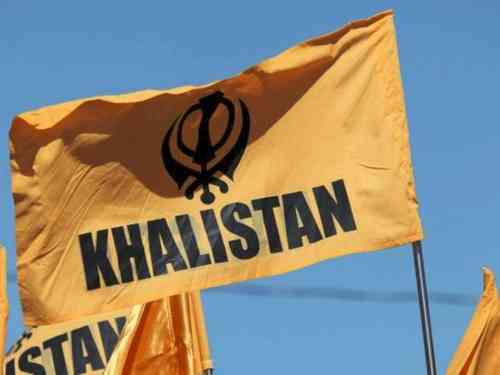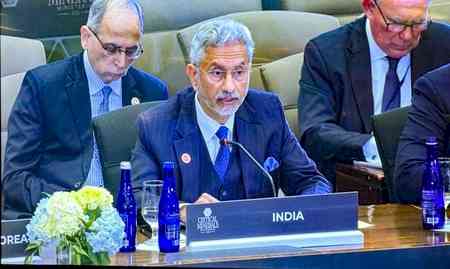Canada's security landscape continues to be exploited by Khalistani extremists
A recent online debate about historical figure Mewa Singh has reignited concerns regarding Canada's struggle with Khalistan-linked extremism. The discussion started after commentary once again emerged about the 1914 killing of Canadian immigration officer William C Hopkinson by Mewa Singh, a member of the Ghadar Party, a report has detailed.

Ottawa, Nov 20 (IANS) A recent online debate about historical figure Mewa Singh has reignited concerns regarding Canada's struggle with Khalistan-linked extremism. The discussion started after commentary once again emerged about the 1914 killing of Canadian immigration officer William C Hopkinson by Mewa Singh, a member of the Ghadar Party, a report has detailed.
"Singh shot Hopkinson inside the Vancouver courthouse in the aftermath of the Komagata Maru incident, later surrendering and pleading guilty before being executed in 1915. While some portray Singh as a martyr, others emphasise the gravity of assassinating an unarmed official inside a government building. More than a century later, national security experts say the historical narrative is increasingly invoked by modern Khalistan-aligned violent actors attempting to legitimize extremist activities in Canada," a report in Khalsa Vox stated.
A recent film that has been funded by the government has reignited the debate surrounding Mewa Singh as some Sikhs see him as a martyr while other Canadians see the assassination as politically motivated terrorism, Juno News highlighted.
"The Canadian government's support, along with the association of elected MPs, has drawn particular scrutiny amid ongoing concerns over Sikh-related extremism within the modern Khalistani movement in Canada," the Canadian outlet reported earlier this week.
As per intelligence assessments, a small but persistent network of Canada-Based Khalistani Extremists (CBKEs) continue to use freedom in Canada to work on their violent goals related to separatist agendas in other nations. Canadian Security Intelligence Service (CSIS) has repeatedly described their activities, including propaganda, fundraising and operational planning, as credible national security risks.
The CSIS stated that majority of Sikh community living in Canada is peaceful and law-abiding. However, it warned that a fringe minority continues to facilitate violence, posing challenges to the safety of the people and foreign policy.
"National security officials stress that any discussion about Khalistan-linked extremism is inseparable from the painful legacy of the 1985 Air India Flight 182 bombing — the deadliest act of terrorism in Canadian history. The attack, which killed 329 people, was orchestrated by extremists based in Canada, exposing major intelligence and policing gaps later acknowledged in a federal inquiry. The tragedy remains a central reference point for CSIS and the federal government as they monitor contemporary extremist networks," the Khalsa Vox report detailed.
"From the courthouse killing in 1914 to the Air India bombing in 1985, and CSIS’s ongoing warnings today, experts argue that Canada’s security landscape has repeatedly been exploited by violent actors linked to separatist extremism. Officials emphasise that the threat does not come from any community as a whole, but from ideologically motivated individuals who leverage Canada’s openness to orchestrate violence beyond its borders," it added.
--IANS
akl/as



 IANS
IANS 










